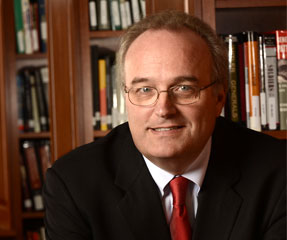 Accreditation agencies were at the top of the news. The Accrediting Commission for Community and Junior Colleges’ (CCJC) president, Barbara Beno, was placed on administrative leave for six months up to her scheduled retirement. The leave begins 30 days before the Commission is scheduled to make its final decision on accrediting the City College of San Francisco (CCSF). Her removal also precedes the U.S. Department of Education’s (ED) decision whether to revoke CCJC’s ability to accredit two-year colleges, scheduled to follow CCJC’s meeting to determine the fate of CCSF.
Accreditation agencies were at the top of the news. The Accrediting Commission for Community and Junior Colleges’ (CCJC) president, Barbara Beno, was placed on administrative leave for six months up to her scheduled retirement. The leave begins 30 days before the Commission is scheduled to make its final decision on accrediting the City College of San Francisco (CCSF). Her removal also precedes the U.S. Department of Education’s (ED) decision whether to revoke CCJC’s ability to accredit two-year colleges, scheduled to follow CCJC’s meeting to determine the fate of CCSF.
If the timing of these actions and decisions sounds political, the decision of ED Secretary John King, Jr., on December 12th to deny the appeal of the Accrediting Council for Independent Colleges and Schools (ACICS) regarding its recognition as an accrediting body was clearly so. ACICS is a national accreditor that oversees 245 institutions, many of them for-profit, enrolling roughly 600,000 students. On Friday, ACICS filed a lawsuit against ED asking for injunctive relief from the 18-month window, given its institutions to secure accreditation with another accrediting body while the lawsuit navigates the courts. The issues with CCJC have been brewing longer than those with ACICS, but the different treatment is no surprise.
Stonybrook University may be reviewing the scholarship behind a Ph.D. dissertation approved in philosophy for a person active in white nationalist circles. Jason Reza Jorjani is a lecturer in humanities at the New Jersey Institute of Technology and is also editor-in-chief of Arktos Media, an organization aligned with the alt-right. Scholars of academic freedom have criticized the move, stating that the only reason to do so is if there is allegation of plagiarism or research misconduct, not the political perspectives of the recipient.
DeVry University and the Federal Trade Commission announced a $100 million settlement for claims that DeVry misrepresented statistics about its job placement rates and salaries. Half of the settlement amount will be paid to the FTC and the other half will repay student loans and student accounts receivable for loans issued before September 30, 2015. In a company statement, DeVry denied all claims of wrongdoing.
The University of Virginia’s Miller Center and the National Commission on Financing 21st Century Higher Education issued a report on Wednesday with nine recommendations for funding the increased production of post-secondary credentials in the U.S. so that 60% of the nation’s workforce will have a post-secondary credential by 2025. At the current participation and graduation rates, that will require an additional 16.4 million people to earn credentials between 2017 and 2025. It will also require that public colleges and universities receive an additional funding of $30.1 billion annually between now and 2025. The Miller Center created the bipartisan commission, comprised of former lawmakers and college presidents in 2014 with funding from the Lumina Foundation. The nine recommendations are:
- Increase federal and state institutional support;
- Enhance state revenue to support higher education;
- Stimulate the development and implementation of low-cost education delivery models;
- Encourage productivity in the post-secondary system;
- Create incentives for students to graduate on time;
- Help students and their families make better decisions;
- Increase and reform financial aid to target low-income students;
- Develop additional private funding;
- Take advantage of private-sector programs.
The report is worth reading for details behind each of these recommendations. In addition, the Commission coordinated the publication of 10 white papers on higher education funding topics. Findings and recommendations from those white papers formed the basis and conclusion of the summary report.











